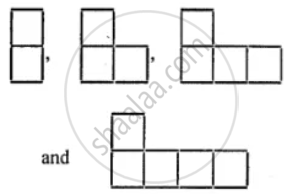Advertisements
Advertisements
Question
Number of primes between 1 to 100 is ______.
Solution
Number of primes between 1 to 100 is 25.
Explanation:
Prime numbers between 1 to 100 are 2, 3, 5, 7, 11, 13, 17, 19, 23, 29, 31, 37, 41, 43, 47, 53, 59, 61, 67, 71, 73, 79, 83, 89 and 97.
APPEARS IN
RELATED QUESTIONS
Fill in the blank:
Smallest natural number is _________
State true or false:
0 + 18= 18 + 0
By re-arranging the given numbers evaluate :
21 + 22 + 23 + 24 + 25 + 75 + 76 + 77 + 78 + 79
Which property of addition is satisfied by :
(7 + 6) x 10 = 7 x 10 + 6 x 10
Which property of addition is satisfied by :
23 + (-23) = 0
State True or False:
Every whole number x 1 = The whole number itself.
Fill in the blank :
32 x 15 = 32 x 6 + 32 x 7 + 32 x ______
By re-arranging the given numbers evaluate :
2 x 487 x 50
Use distributive law to evaluate :
385 x 1004
Evaluate using properties :
8324 x 1945 – 8324 x 945
Evaluate using properties :
333 x 987 + 13 x 3333
Complete the following magic squares:
| 6 | 7 | _______ |
| _______ | 5 | 9 |
| 8 | _______ | 4 |
Complete the following magic squares:
| 4 | _______ | 8 |
| _______ | 7 | ________ |
| _______ | _______ | 10 |
See the following pattern carefully:

- If n denotes the number of figures and S denotes the number of matches; find S in terms of n.
- Find how many matches are required to make the :
(1) 15th figure
(2) 40th figure - Write a discretion of the pattern in words.
Fill in the blank:
0 + 987 = ……….
The greatest number which always divides the product of the predecessor and successor of an odd natural number other than 1, is ______.
Natural numbers are closed under addition.
The number of multiples of a given number is finite.
All natural numbers are whole numbers.
